Top 17 Superfoods You Should Eat Every Day to Protect Your Heart

A heart-healthy diet doesn't have to be boring or repetitive—many of the most nutritious choices are also delicious. "The foods you eat directly impact your cardiovascular health," says UCSF Health. "Improving your diet can help you manage current health conditions, such as high cholesterol, blood pressure and blood sugar, and can also help prevent future health problems." Here are 17 superfoods that are good for your heart, your weight, and your overall health.
Leafy Greens
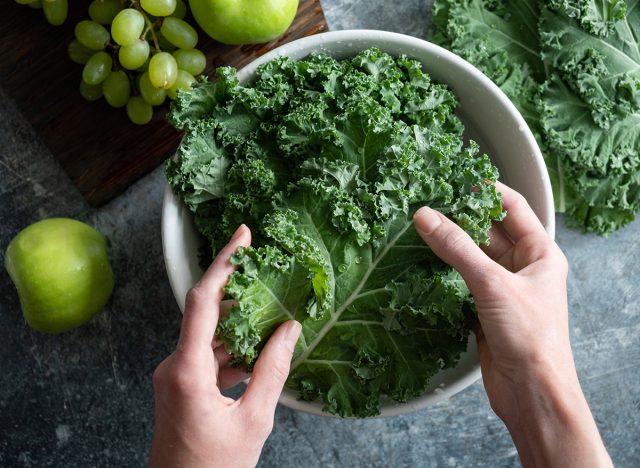
"Leafy greens such as kale, spinach, and bok choy are packed with vitamins, minerals, and antioxidants, which can help lower blood pressure and reduce the risk of heart disease," according to Harvard Health. "Leafy greens are rich in nitrates, which help to relax and widen blood vessels. Research has found that people who ate the most nitrate-rich vegetables (especially leafy greens) lowered their risk of cardiovascular disease by 12% to 26%."
Whole Grains
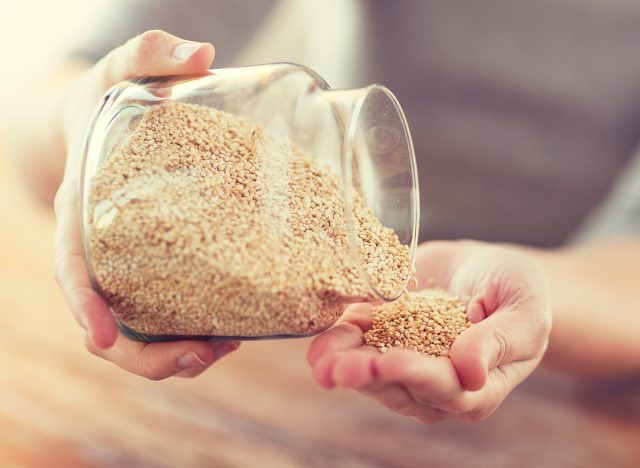
"My favorite grains to eat are quick oats and quinoa," says dietitian Margie Junker via UC Davis Health. "Both are whole grain and easy to cook. I stay away from foods containing processed white flour because there are fewer nutrients and no fiber."
Salmon and Tuna
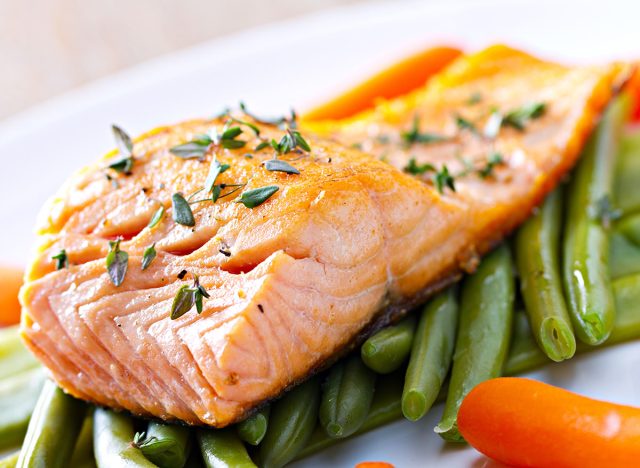
"These fish are high in omega-3s–healthy fats that can lower your blood pressure and reduce your risk of heart rhythm disorders," says Iowa Healthcare. "If you're a vegetarian, try tofu as an alternative."
Healthy Fats
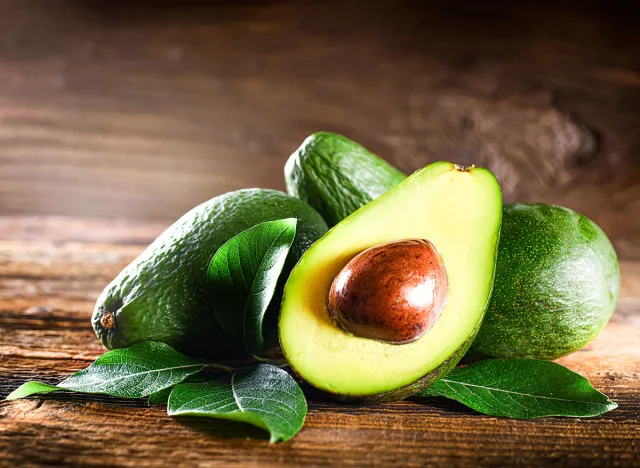
"Different types of fats can impact your health differently—healthy fats can help protect your heart, and unhealthy fats can increase your risk of developing heart disease," says Heart Foundation. "Choose foods with high amounts of healthy fats such as avocados, olives, nuts and seeds, and use healthy oils for cooking, for example, olive, canola, sunflower, peanut and soybean oil. These foods can help lower your cholesterol."
Black Beans
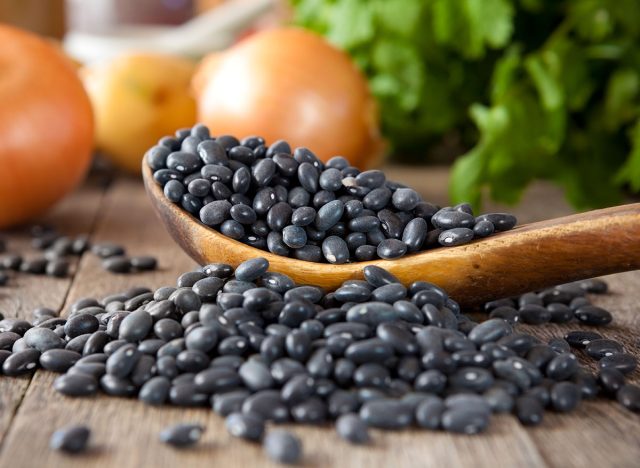
Black beans are filled with antioxidants, folate, and magnesium that can help lower your blood pressure," says Iowa Healthcare. "Don't forget to rinse canned black beans to remove extra salt."
Figs
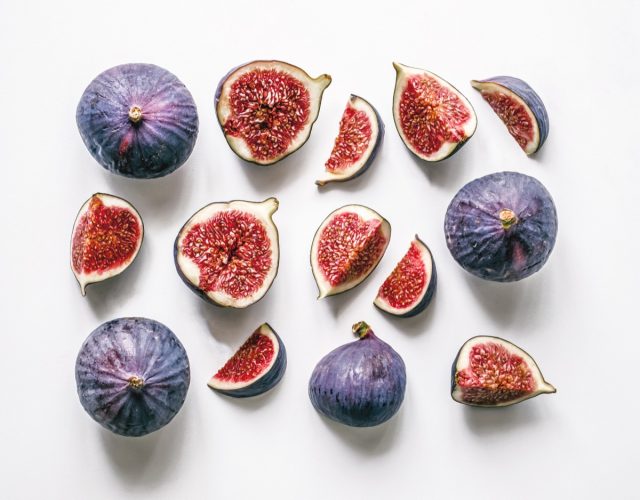
"Bursting with healthy phytochemicals and antioxidants, figs also contain heart-healthy minerals like magnesium, potassium, calcium and iron," Melissa Jewell, RD, tells Orlando Health. "Whether you eat figs dried or fresh, they're a great plant-based food to include in your diet."
RELATED: 20 Intermittent Fasting Mistakes Preventing You From Losing Weight
Berries
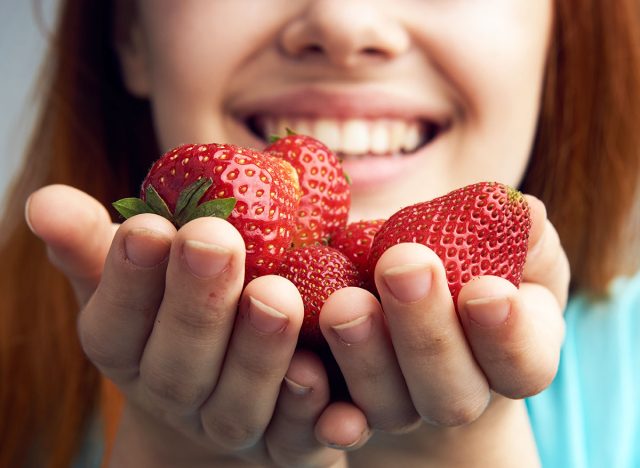
"Berries like strawberries and blueberries are also excellent for heart health, as they are packed with antioxidants, which protect against oxidative stress and inflammation that can contribute to the development of heart disease," according to Harvard Health. "Studies associate regular, moderate intake of blueberries with reduced risk of cardiovascular disease."
Dark Chocolate
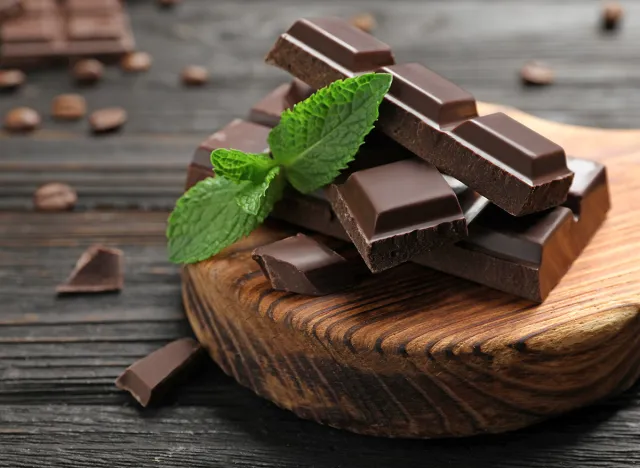
"Consuming dark chocolate in moderation can help boost your heart health and lower your risk of heart disease, stroke, and diabetes," according to Iowa Healthcare. "Pick a dark chocolate that is at least 70% cocoa to get the benefits."
Pumpkin
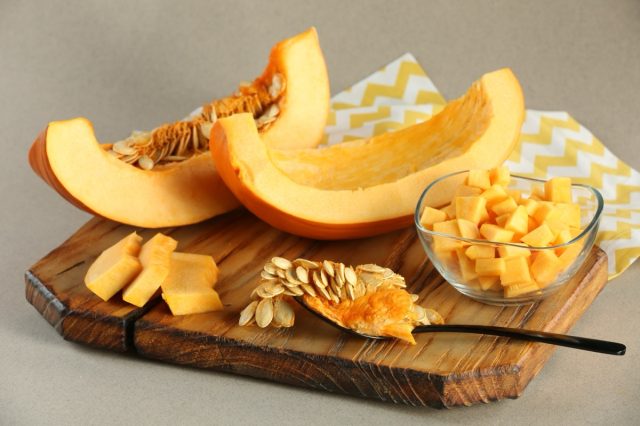
"Full of fiber, pumpkin also contains potassium and vitamin A," Jewell says. "You can easily find canned pumpkin (still loaded with nutrients) and pumpkin seeds (filled with high-fiber content). Both are rich in magnesium. For seeds, choose the unsalted kind."
Herbs and Spices
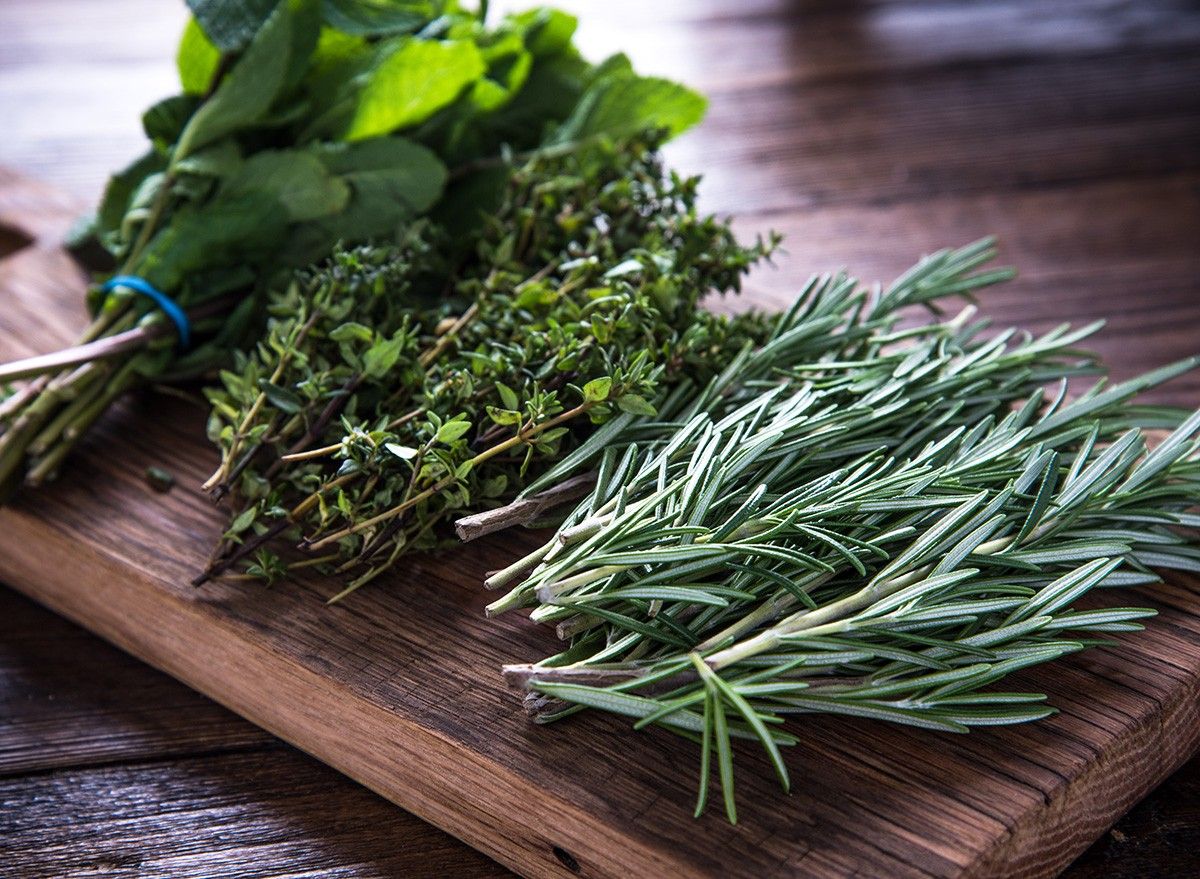
"Many people don't realize that most of the salt they eat is found in processed and packaged foods such as canned foods, deli meats (like ham and salami), and baked goods," says the Heart Foundation. "Reading food labels can help you make healthier choices in the supermarket aisle. One of the best ways to reduce the amount of salt you eat is to base your diet on fresh, unprocessed foods like fruit and vegetables. If you want to add extra flavor to your food, try adding herbs and spices."
RELATED: 10 Red Flags That You're Eating Too Much Sodium
Plant Protein
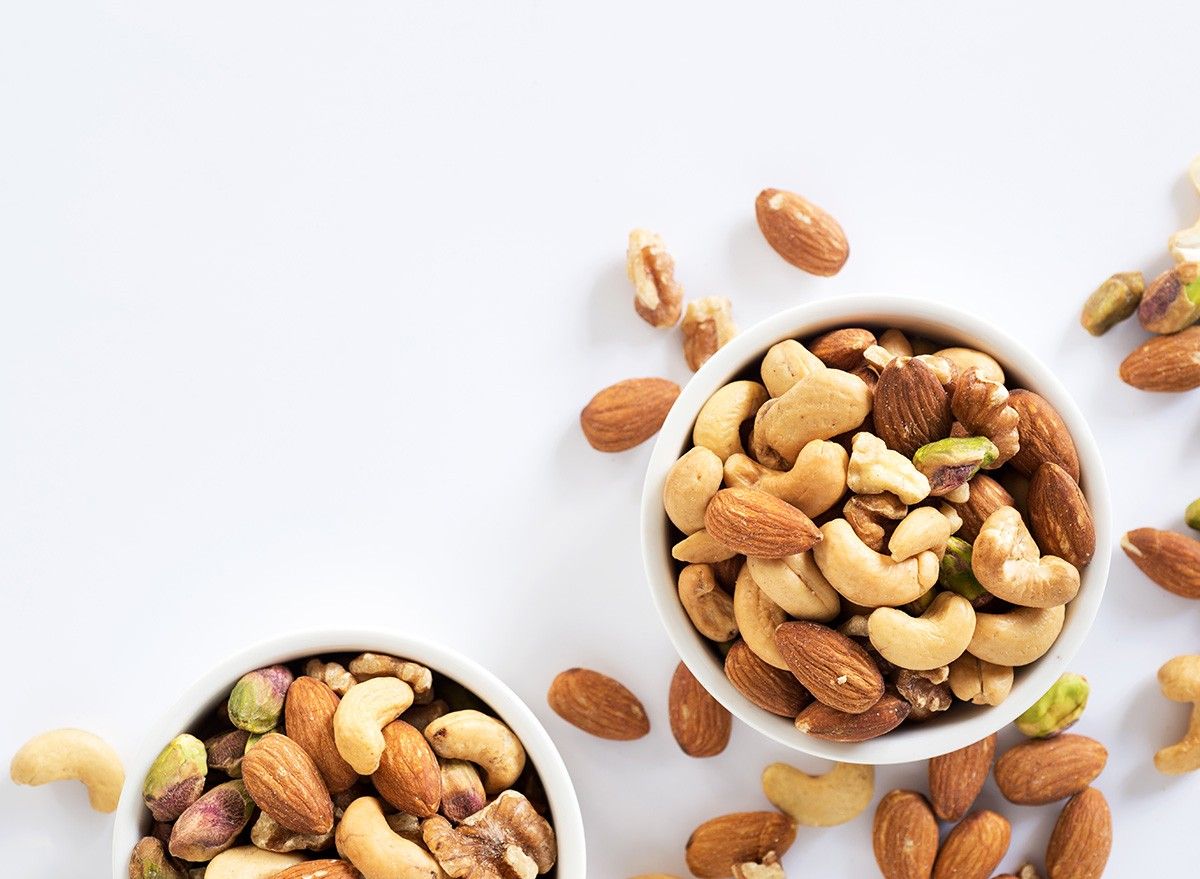
"I love to eat a serving of nuts daily. Walnuts and almonds are known for their omega-3 fatty acids," Junker says. "A quarter cup of nuts makes a great snack. Eating more nuts was associated with a lower risk of heart disease, coronary heart disease, and stroke. Lentils are high in fiber, high in protein, easy to cook, and may cause less gastrointestinal (GI) discomfort than beans. A higher intake of legumes (beans and peas) is linked to lower heart disease risk."
Low-Fat Yogurt
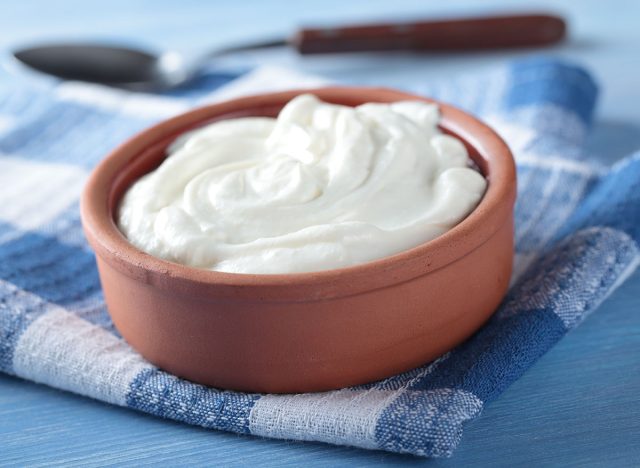
"Dairy not only helps your bones stay strong but also helps control your blood pressure," according to Iowa Healthcare. Low-fat options help boost calcium intake and minimize fat."
Oatmeal
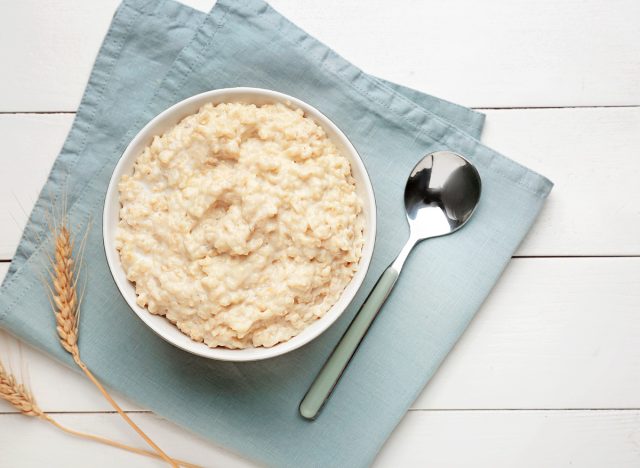
"Oatmeal is a good source of healthy fiber, healthy fats, and protein," Cleveland Clinic outpatient dietitian Kate Patton tells AARP. "Soluble fiber is really important for our digestive tract and keeping blood sugar levels stable."
Lean Meat

"There is a direct association between eating red meat and the risk of heart disease and death," Junker says. "That relationship is even stronger for processed meat such as bacon or hot dogs. Instead of processed meats, I often choose skinless chicken thighs. It's leaner than most beef, affordable, and has more flavor than chicken breast, which I get tired of."
Beets
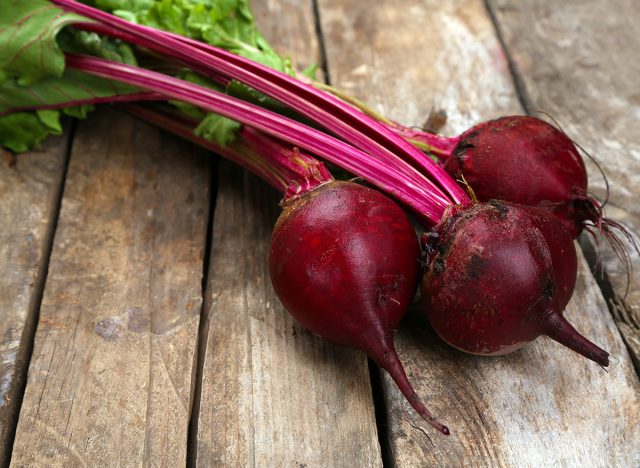
"Beets are composed of dietary nitrate, which acts as a precursor to nitric oxide," Jewell says. Research shows that nitric oxide can aid in reducing blood pressure."
RELATED: 20 Effective Techniques to Reduce Your Body Fat
Maple Syrup
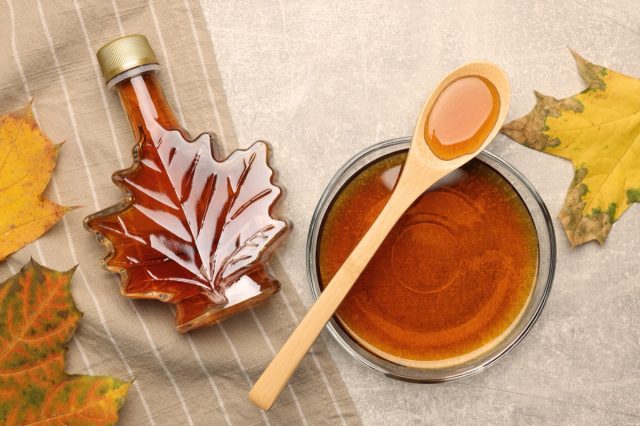
"I love using maple syrup in my coffee and oatmeal. I also sweeten with small amounts of local honey," Junker says. "I avoid any chemically based sweeteners and processed white sugar. Added sugars are associated with increased risk of type 2 diabetes, coronary heart disease and being overweight. Alternative sweeteners have shown mixed effects on metabolism."
Grapefruit
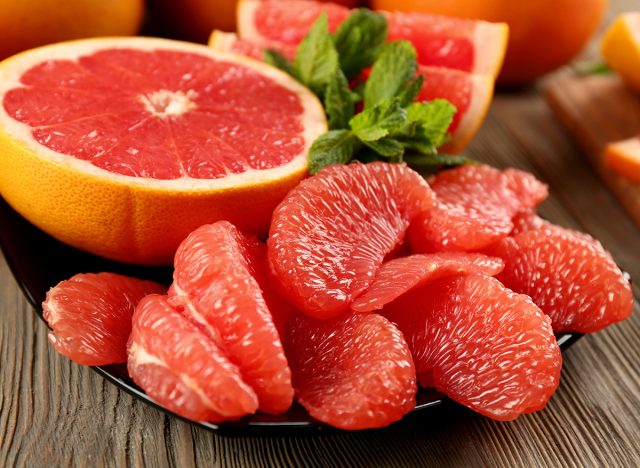
"Studies have shown that grapefruit — loaded with phytochemicals such as flavonoids and vitamins like A and C — can help fight heart disease and stroke," Jewell says. And if you enjoyed this article, take advantage of these 20 Superfoods for People Over 50.




